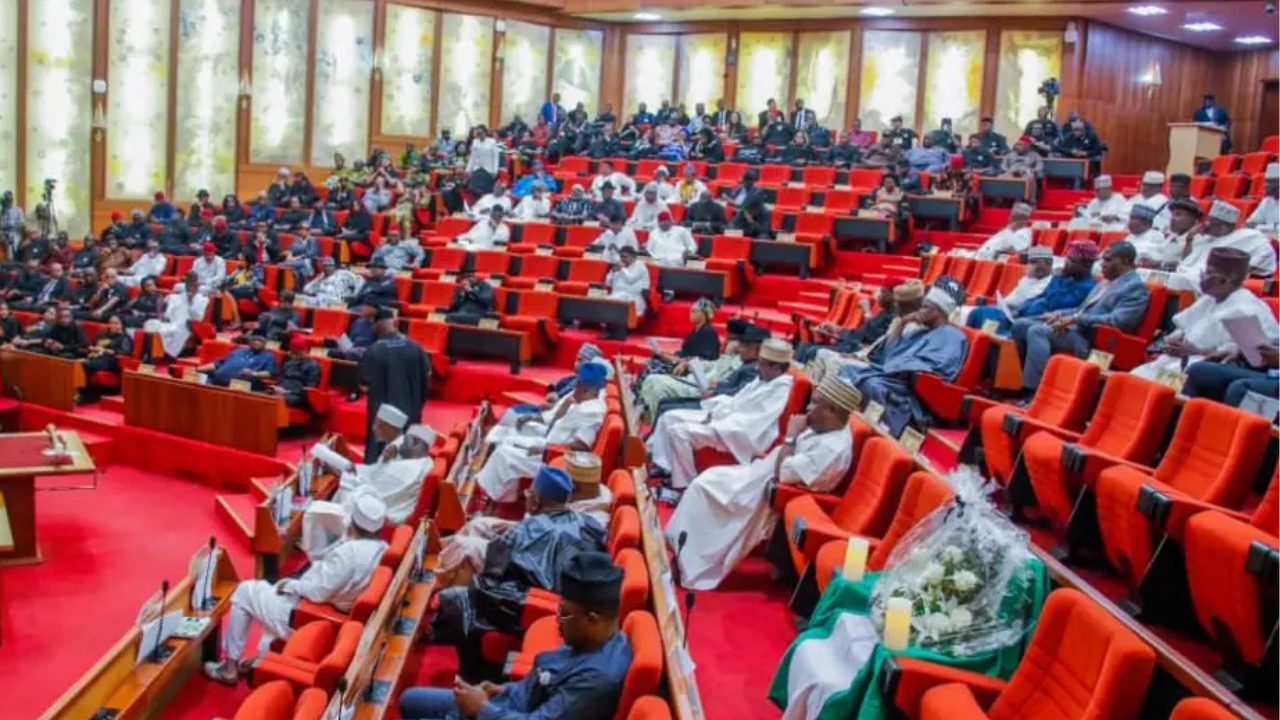The Senate has issued a stern warning to federal government Ministries, Departments, and Agencies (MDAs), saying they will receive zero allocation in the proposed 2025 budget if they fail to present expenditure records for the 2024 appropriations.
The warning was delivered during an investigative hearing of the Senate Committee on Finance chaired by Senator Sani Musa (APC, Niger East) in Abuja on Monday.
The session focused on the remittances of internally generated revenue, fiscal accountability, and overall financial management in Nigeria.
The Senate expressed dissatisfaction with discrepancies observed in the records of some MDAs.
Its warning to agencies lacking proper expenditure records from the 2024 appropriations came to the forefront during the hearing, which also examined the remittances of internally generated revenue and the overall state of the country’s financial management system.
Specifically, Senator Musa stated in his closing remarks after the interface with the Accountant General of the Federation, Oluwatoyin Madein, that any agency which failed to appear before the Senate committee risks zero allocation for the 2025 fiscal year.
“This performance index exercise for various MDAs is preparatory to the 2025 budget. Any agency that fails to appear before this committee upon invitation risks zero allocation in the 2025 budget because records of how appropriations made for 2024 are expended must be provided with facts and figures,” he said.
Before the warning, the Accountant General had presented a summary of internally generated revenue for the federal government up to September 2024.
The reported figures included: “Independent revenue of ₦2.7 trillion, Operating surplus from Government-Owned Enterprises (GOEs) amounting to ₦2.3 trillion, and Ministries, Departments, and Agencies’ (MDA) internally generated revenue (IGR) of ₦344 billion.”
However, the committee observed that the submitted report focused solely on the Accountant General’s office, leaving significant omissions regarding the federal government’s overall financial activities.
In response to the identified gaps, the legislative committee resolved to invite other relevant agencies, including the Revenue Mobilization Allocation and Fiscal Commission (RMAFC), the Nigerian Extractive Industries Transparency Initiative (NEITI), and the Nigerian National Petroleum Corporation Limited (NNPCL), for a joint session to ensure a comprehensive review of the discrepancies.
“This is not about hearing from one side and another separately; we need all stakeholders present at the same time to provide clarity and consistency in their reports,” the chairman emphasised.
He further stated that the Senate hearing reflected growing efforts to strengthen Nigeria’s financial oversight and accountability mechanisms, with a shared commitment to enhancing transparency and building a robust fiscal policy framework.
Other committee members expressed deep frustration during the interface with the Accountant General over persistent delays in the release and utilization of capital budgets, citing inefficiencies within the centralized payment system managed by the Office of the Accountant General.
They criticised the centralized payment policy, which requires over 700 MDAs to process payments through a single office. According to them, this policy has resulted in inefficiencies, delayed project completions, and diminished public trust, especially in constituencies expecting the execution of critical infrastructure projects.
Concerns were also raised about contractors being required to pay under-the-table fees—reportedly 5 per cent of the contract value—to expedite their payments. If verified, this practice represents a major accountability issue that undermines the efficiency of the system, the lawmakers noted.
The Accountant General revealed that stamp duty revenues from 2020 to 2024 were disappointingly low, totaling ₦30.3 million compared to the ₦301.49 billion in internally generated revenue (IGR). Lawmakers linked this to poor budget performance, as taxes are only collected when payments are made.
In defense of the centralized payment system, the Accountant General explained that it was introduced to curb inefficiencies and prevent unutilized funds from being rolled over annually.
The committee, however, gave the Accountant General until Wednesday of the same week to provide all requested reports ahead of a follow-up meeting scheduled for 2 p.m. the same day.
Lawmakers also indicated plans to summon other agencies, including the NNPCL and NEITI, to address discrepancies in their submissions.
